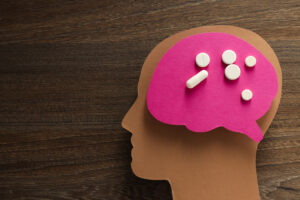[ai_post_generator_toc]
Modern treatments for ADHD in today’s world, How ADHD in children and adults can affect functioning
Modern Treatments for ADHD in Today’s World
 Attention Deficit Hyperactivity Disorder (ADHD) is a neurodevelopmental disorder that affects both children and adults. It is characterized by difficulties in sustaining attention, hyperactivity, and impulsivity. In this blog, we will explore what ADHD is and delve into the various modern treatments available to manage this condition effectively.
Attention Deficit Hyperactivity Disorder (ADHD) is a neurodevelopmental disorder that affects both children and adults. It is characterized by difficulties in sustaining attention, hyperactivity, and impulsivity. In this blog, we will explore what ADHD is and delve into the various modern treatments available to manage this condition effectively.
Understanding ADHD in Children and Adults
ADHD can have a significant impact on the functioning of children and adults alike. In children, it can interfere with their academic performance, social interactions, and overall well-being. Similarly, in adults, ADHD can affect their work productivity, relationships, and overall quality of life.
The Importance of Early Detection and Diagnosis
Early detection and diagnosis of ADHD are crucial for effective management. It allows for timely interventions and access to appropriate treatments. If you suspect that your child or yourself may have ADHD, it is essential to consult with a healthcare professional who specializes in ADHD diagnosis and treatment.
Traditional Approaches to ADHD Treatment
Historically, the primary treatment options for ADHD have included medication, behavioral therapy, and educational interventions. These approaches have proven to be beneficial in managing symptoms and improving overall functioning. However, with advancements in medical science and research, modern treatments for ADHD have emerged, offering new possibilities for individuals with ADHD.
Medication as a Treatment Option
One of the most common and effective modern treatments for ADHD is medication. Stimulant medications, such as methylphenidate and amphetamines, are commonly prescribed to manage symptoms of inattention, hyperactivity, and impulsivity. These medications work by affecting the brain chemicals responsible for regulating attention and behavior.
Behavioral Therapy for ADHD
In addition to medication, behavioral therapy plays a crucial role in the treatment of ADHD. Behavioral therapy aims to teach individuals with ADHD strategies to manage their symptoms and improve their functioning. It involves techniques such as cognitive-behavioral therapy, social skills training, and parent training programs. These interventions help individuals develop coping mechanisms, organizational skills, and effective communication strategies.
Alternative and Complementary Approaches
While medication and behavioral therapy are widely accepted as effective treatments for ADHD, some individuals may seek alternative or complementary approaches. These may include dietary changes, mindfulness practices, neurofeedback, and herbal supplements. It is important to note that while these approaches may provide some benefits, they should always be discussed with a healthcare professional to ensure their safety and effectiveness. In conclusion, ADHD is a complex neurodevelopmental disorder that requires comprehensive management. Modern treatments, such as medication and behavioral therapy, have significantly improved the lives of individuals with ADHD. Early detection, accurate diagnosis, and access to appropriate treatments are crucial for effectively managing ADHD and optimizing overall functioning and well-being.
Our keywords
1. Attention Deficit Hyperactivity Disorder (ADHD)
2. Executive function deficits
3. Inattention and distractibility
4. Hyperactivity and impulsivity
5. Neurodevelopmental disorder
6. Diagnostic criteria for ADHD
7. ADHD symptoms in children/adults
8. Behavioral interventions for ADHD
9. Pharmacological treatment options
10. ADHD medication management
11. ADHD and comorbid conditions (e.g., anxiety, depression)
12. Impact of ADHD on academic performance
13. ADHD accommodations in school/work settings
14. Cognitive-behavioral therapy for ADHD
15. Parenting strategies for ADHD management
16. ADHD coaching and support services
17. Long-term outcomes for individuals with ADHD
18. ADHD awareness and stigma reduction
19. Neurobiological basis of ADHD
20. Research advances in ADHD treatment and understanding